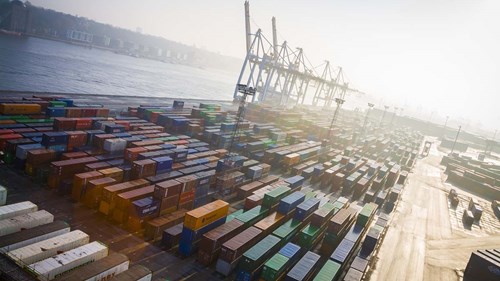Working paper of the Directorate-General for Competition on dual role agents
After more than ten years of validity, the Vertical BER (Commission Regulation (EU) No 330/2010) will expire on 31 May 2022.
Among other things, one subject being discussed in the context of the evaluation and public consultation for a potential successor arrangement is how dual role agents, i.e. agents who are also acting as dealers of the principal, are to be treated under antitrust law. DG Competition has now taken up the issues which are currently unclear with respect to the classification of such an agent under antitrust law in a working paper and given a first opinion on this (working paper of 5 February 2021).
The working paper mainly deals with the controversial scenarios where the products distributed by the agent acting in a dual role belong to the same relevant product market. The DG Competition does not discuss online platforms in its working paper.
Dual role agents
Obviously, the ban on cartels established by Article 101(1) TFEU applies where the dealer at the same time acts as an agent of the principal for the same product. In this case the dealer – from a pure antitrust law perspective – is not considered a (genuine) agent (see, for example, ECJ, judgment of 16 December 1975, 40/73, Suiker Unie, para. 544/547). In these cases there is a risk that the principal influences the determination of prices and conditions by the sales partner acting as dealer in the sale of the same product and does not bear all relevant financial and commercial risks related to the agency relationship, i.e. that the principal abuses the agency relationship to circumvent the applicability of the cartel ban. If Article 101(1) TFEU is applicable, the “agent privilege” does not apply and restrictions with respect to territory or customers, for example, require exemption under Article 101(3) TFEU. In addition, the differentiation between “genuine” and “non-genuine” agents can, depending on the perspective, also be of relevance for the controversial question of whether or not a ban on passing on commission is admissible.
It is also clear, however, that Article 101(1) TFEU does not apply where the activities performed as an agent on the one hand and those performed as a dealer on the other take place on different product markets. In this scenario it is not likely that the dealer’s activities, for example with respect to pricing policy, are in any way influenced by the simultaneously existing agency relationship. In addition, the relevant risks and investments which the sales partner bears as an agent on the one hand and as a dealer on the other can be clearly distinguished in this case. This is of crucial importance, as the European Commission holds the view that it is a necessary requirement for the existence of a (“genuine”) agency agreement that the principal bears all costs and risks relating to the agency agreement considered relevant by the Commission (see Vertical Guidelines, para. 14 onwards, for details on this).
However, up to now it has been unclear how scenarios have to be judged in terms of antitrust law where a product sold by dealers at their own risk belongs to the same product market as another product sold by them acting in an agent role for the principal. According to the Commission’s Guidelines on Vertical Restraints, the (“genuine”) agent may not “undertake other activities within the same product market required by the principal”.
However, in a decision frequently cited in connection with dual role agents, the ECJ does not refer to the same product market, but rather to the much narrower concept of the “same commodity” (ECJ, judgment of 16 December 1975, 40/73, Suiker Unie, para. 547). In a later decision of the General Court which makes explicit reference to Suiker Unie, the Court obviously interprets “same commodity” as meaning the “relevant market for the product or service in question”, but without dealing with the matter in more detail or giving any explanation (EGC, judgment of 11 December 2003, T-66/99, Minoan Lines, para. 128).
Assessments of this scenario in legal literature therefore vary. Some authors just assume in a blanket manner that there may not be any activity on the same product market (Langen/Bunte, Kartellrecht Kommentar, Europäisches Kartellrecht, 13th ed. 2018, Article 101 AEUV, para. 697) if the agent’s activity on the product market is not to fall under the scope of application of Article 101(1) TFEU. Others explain in a more differentiated approach that only the distribution of the same product is problematic in this respect and that an activity on the same product market is ruled out by the Guidelines on Vertical Restraints only if it is “required by the principal” (Stauber, NZKart 2015, 423).
What is new?
The working paper now shows that the Directorate-General for Competition considers it possible even in the scenario last mentioned above that Article 101(1) TFEU does not apply so that a “genuine” agency relationship exists. However, the Directorate-General for Competition defines the following conditions for this, all of which must be met:
- The products sold by the sales partner as an agent on the one hand and as a dealer on the other hand must be clearly distinguishable. The less interchangeable the products are, the less likely is the risk that the principal is able to influence the dealer with the principal’s pricing policy. Moreover, the risks and investments can be clearly distinguished in such scenarios (see working paper, paras. 7 and 9).
- The activity of agents may not be linked to their dealer role. For example, the principal may not make the existence of the dealer agreement subject – whether de jure or de facto – to the conclusion of the agency agreement (or vice versa).
- In addition, the principal has to bear all relevant risks in connection with the agent activity.
As regards the third point, the DG Competition raises the following (new) aspect in this context: If a sales partner who previously was a dealer for the principal acting at his or her own risk later also acts as an agent for the principal on the same product market but for a different product, the principal should reimburse the sales partner for the market-specific investments which the sales partner has already made as a dealer before such point in time that are also relevant for the sales partner’s new role as an agent. Sales partners should be put in the position they would be in if they had not acted for the principal at all until then (working paper, para. 20 onwards).
It is, however, questionable whether this approach is actually of much relevance in practice. This is because market-specific investments are investments which are “specifically required for the type of activity for which the agent has been appointed by the principal, that is, which are required to enable the agent to conclude and/or negotiate this type of contract. Such investments are usually sunk, which means that upon leaving that particular field of activity the investment cannot be used for other activities or sold other than at a significant loss.” As a result, these investments are usually designed to precisely fit the product or brand concerned (such as product-specific training, brand-specific furnishing of salesrooms, etc.). Consequently, in many cases these investments will not be of any relevance for the sales partner’s activity as an agent for such other product.
What impact does the working paper have?
The working paper is explicitly intended only to express provisional views of the Directorate-General for Competition which according to the DG Competition are based on informal discussions with stakeholders.
The working paper is not binding by nature and it is explicitly not intended to anticipate the review or the results with regard to the amendment of the Vertical BER (see Review of the Vertical Block Exemption Regulation), but rather to serve as a basis for further discussions on this topic in connection with the amendment of the Vertical BER.
It remains to be seen to what extent the views of the Directorate-General for Competition will be reflected in the Vertical BER and/or in new guidelines for vertical restraints.










